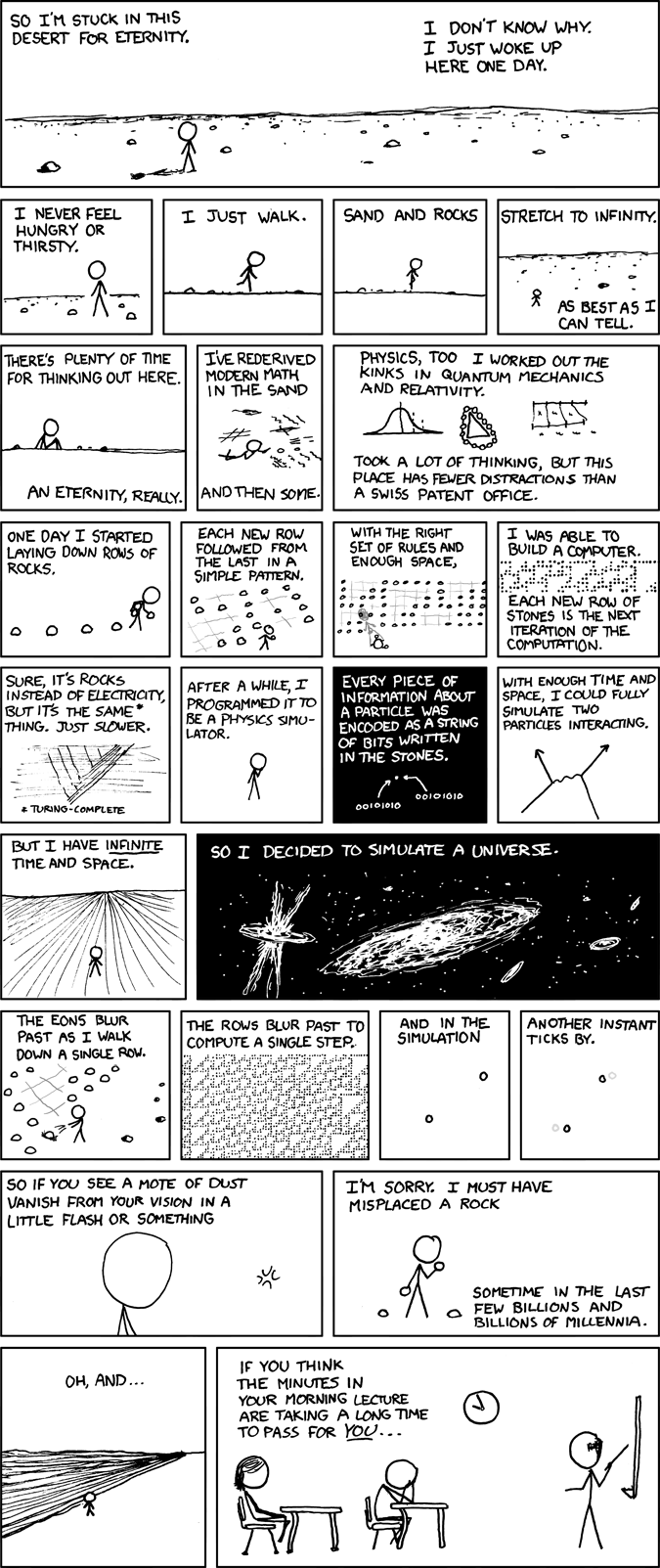I often find thinking about various metaphysical problems in terms of Turing machines is an extremely powerful tool, particularly the problem of consciousness. I was inspired a few moments ago by this xkcd comic (one of my favourites):

My thought was this: how does the rate of passage of time in the simulation correspond to the actual rate of passage of time of the 'real' Turing machine? Surely the rate at which reality progresses has absolutely no influence on the rate at which time passes for the inhabitants of the simulation? The simulator could go extremely fast or extremely slowly. He could even vary his speed or stop altogether for a while. But exactly the same algorithm would be enacted, and exactly the same brain activity of the simulatees would be emulated, so surely they sould experience the same rate of time passing?
But then, what determines their rate of time? Where does it come from?
As an aside, a thought I've had once before is this: it's my belief that anything simulated by a Turing machine is objectively real; an aspect of corporeality. But then, the Turing machine itself must be objectively real (and so on).
Just a couple of thoughts there. What are yours?
|
|






 LinkBack URL
LinkBack URL About LinkBacks
About LinkBacks





 Reply With Quote
Reply With Quote
Bookmarks